A stoic, young woman has her arm stretched above her head, one leg kicked forward with a heel dug into the ground. Her countenance is one of mild reproach, and now the other hand reaches for her pocket and a yellow card appears. Surrounded by 30 junior high boys, she’s unflinching and confident.
That’s Coco Nate, and she’s refereeing a boys’ 15s game for Rugby Indiana. It’s been a challenging journey for the North Central High School junior, and Nate is willing to field those knee-jerk questions regarding commanding respect and battling intimidation. But the conversation always turns to her support system of mentors, coaches and rugby community members who help her grow through learning moments. In no time at all, the idea of picking up the whistle sounds enticing.
Nate started playing rugby in Hong Kong just before her seventh birthday. Her mother, Minako, had shown her a picture of one kid tackling another, and the idea of contact sports appealed to her. She gravitated toward the aggression, but today, her appreciation is rooted in the sport’s inclusivity.
“In most other sports, you need to have a certain body structure to play, but that’s not the case with rugby,” Nate noted. “Rugby is all about the effort you put into it, not your genetics. Additionally, it’s all about teamwork and diversity in skills and shape. Everyone’s unique roles and skills contribute to creating a strong team.”
When the Nates moved to the U.S. in 2014, the family spent three years in Texas and then relocated to Indiana in 2017, when Coco started playing with Broad Ripple Park. She migrated to North Central’s middle school program as a 7th grader, and brought that round view of the game and work ethic with her.
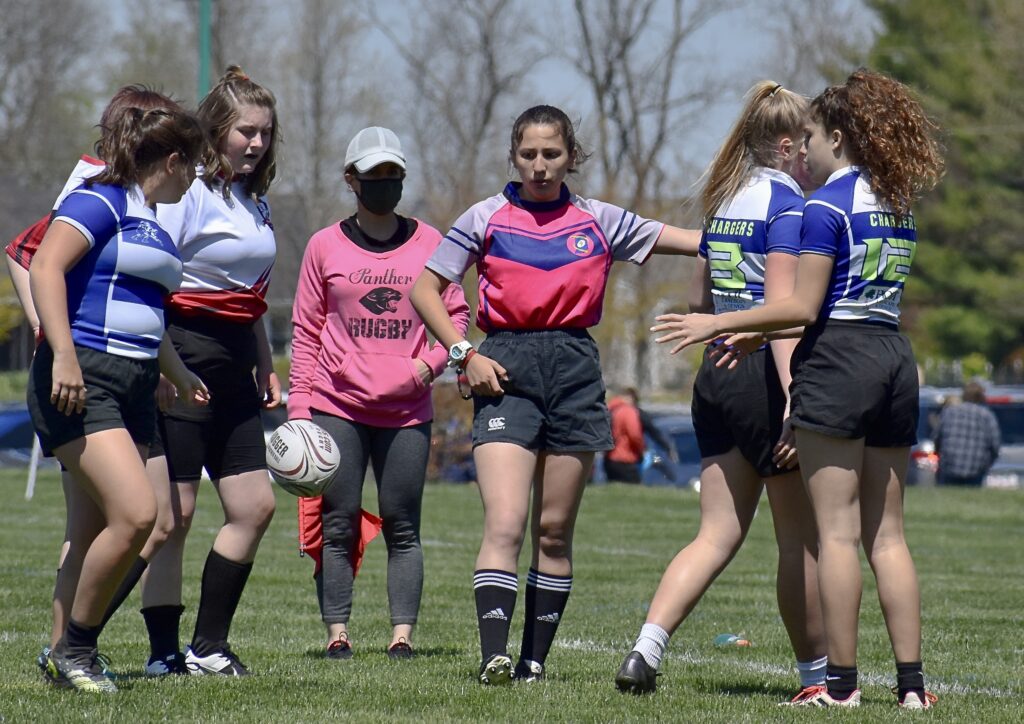
“Coach Suzi [Dillon] is one of my greatest role models,” Nate lauded the-then North Central head coach and Rugby Indiana Hall of Famer. “She always knows exactly what she wants, stands her ground, is compassionate, and is very methodical with how she approaches all situations. Additionally, she has always motivated everyone to do their absolute best and clearly cares about all of the members of the team. Everyone around her also respects her. By observing her, I have learned a lot about the social aspects of rugby and the team. Because of the impact she has had on not only my rugby career but also my life, I believe I would like to become a coach in the future so that I can have the same impact on someone else one day.”
Dillon was an important figure when Nate started refereeing in 8th grade. With her mother’s encouragement, she attended a Rugby Indiana refereeing clinic with the intention of learning the laws and becoming a better player. But then she started to enjoy it.
“One of my favorite aspects of officiating is how by performing my job, I am allowing others to have as enjoyable of a rugby experience as I am capable of providing them with,” Nate noted. “Additionally, I find it fun to officiate because it challenges me, and I enjoy overcoming challenges. These challenges not only make officiating interesting but have also helped me grow as a person. I have learned many lessons and developed countless skills that apply to both rugby and everyday life, whether it be how to stand up for myself or how to defuse arguments.”
Nate started in the co-ed touch and middle school girls’ leagues, and Eric Barker was a crucial mentor in those early days.
“When I first began refereeing, I would often panic after making a call and look at my mentor to see if I was doing the right thing,” Nate confessed. “Mr. Barker refused to tell me what to do during the match and forced me to become more confident in my calls. During quarters, halftime, and after matches, he would ask me what I felt like I did right and wrong, then follow up with some tips or answers to my questions. He challenged me to think for myself rather than to rely on others.”
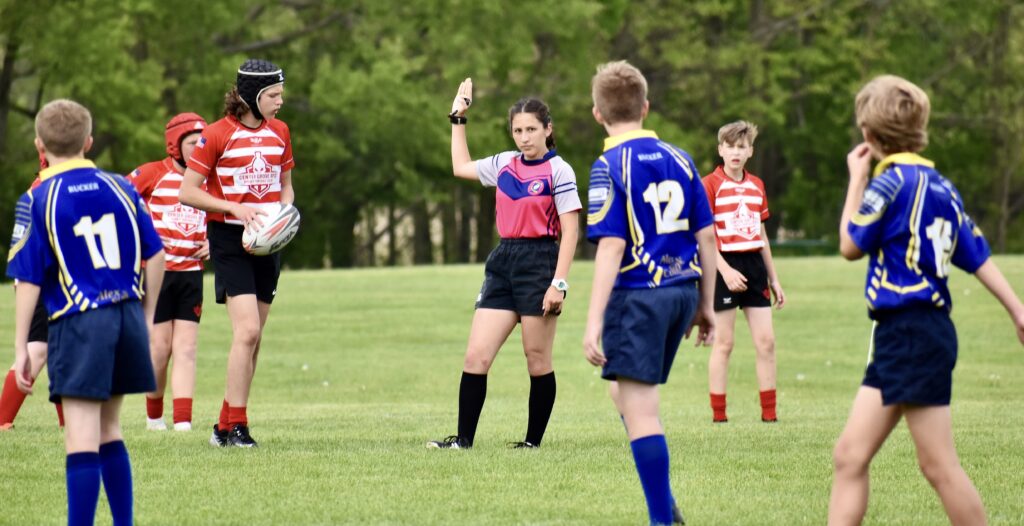
In spring 2021, Nate graduated to the 7th and 8th grade boys’ competition. She was nervous for her very first game, and that anxiety amplified when a miscommunication meant there was no mentor assigned to her match. She was uncomfortable stepping out without any oversight, but a stranger on the sideline agreed to mentor her. That stranger was referee David Bryant, who wasn’t on-call per se but happy to provide some back-up for Nate.
“It was extremely helpful because there were several times where I needed mental reassurance due to the increasing tension among teammates and teams,” Nate remembered. “He helped calm me down during quarters and halftime and would answer my many questions. On my way home, he even gave me a phone call to go over what I did well and what I needed to improve on. This was extremely helpful because he helped set my goals for my next match while also building my confidence.”
That experience was one of many acts of kindness performed by the rugby community, and it has had the greatest impact on Nate’s confidence. When mentors, coaches, parents praise Nate to her face, and then reiterate that feedback to her superiors, she’s driven to improve and serve those who support her. Again, Nate asserts that most coaches understand her learning curve, but she acknowledges that building trust and earning respect are also hard earned. Teenage boys in particular can be difficult to direct.
“Mr. Kevin Donnelly mentored me once during one of my most difficult matches,” Nate recalled. “Although he taught me many things that day, the most important thing he has taught me is the importance of gaining respect. As a young female referee officiating matches for 7th and 8th grade boys, the majority of players won’t respect me unless I give them a reason to. He taught me that how I act when I talk to the captains and teams before a match has a great impact on how the match will play out. The same boys who used to whisper and laugh that a girl close to their age was refereeing them stopped questioning my decisions. Soon after the match, he emailed me a thorough evaluation of how I did and what I needed to improve on. He even made some diagrams explaining to me how I should position myself on the pitch and the different terms for it.”
The experience has helped her anticipate issues and learn to stand her ground. She also gleans inspiration from Caroline Walters, an Indiana referee whom Nate met as an 8th grader.
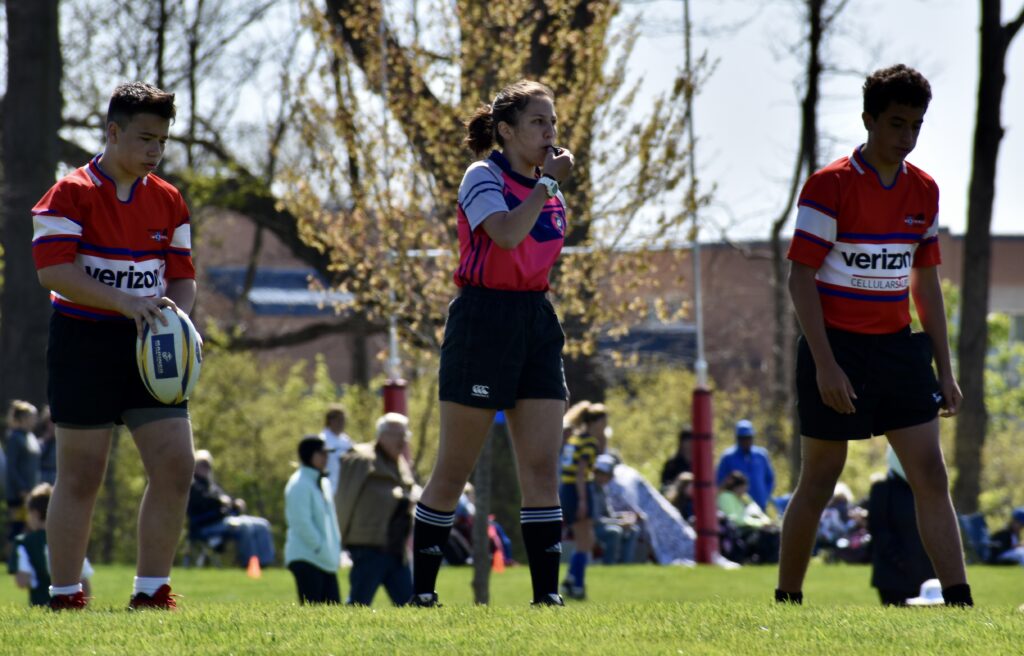
“I have always admired how confident and assertive she is,” Nate reflected on her own journey with confidence. “She never second-guesses her decisions, doesn’t let anyone make her doubt herself, and always effectively stops problems the moment they arise.
“She once told me that what matters most isn’t how correct my calls are, but rather how confident in my calls I seem,” Nate paraphrased Walters’ advice in managing the game. “It was extremely helpful, because the moment I began to act more confident as a referee, I noticed that almost all of the coaches, players, and parents who once doubted me and told me that my calls were wrong backed off and didn’t question my decisions.”
Carding is also a function of confidence. Early in Nate’s career, she relied on warnings to control the game even though yellow cards should have been employed. She didn’t have the tools to approach certain issues and so she sought insight from another top role model, legend Nigel Owens.
“[W]hen he was presented with difficult situations, he was able to handle them perfectly. He was very strict yet reasonable and confident in his decision,” Nate praised the Scottish ref. “The night before I referee, I watch clips of him defusing fights and arguments to analyze how he handles difficult situations before they get too serious. It helps me with confronting players and stopping arguments or bad behavior early on in the match. Thanks to him, what was once one of my greatest weaknesses has become one of my greatest strengths.”
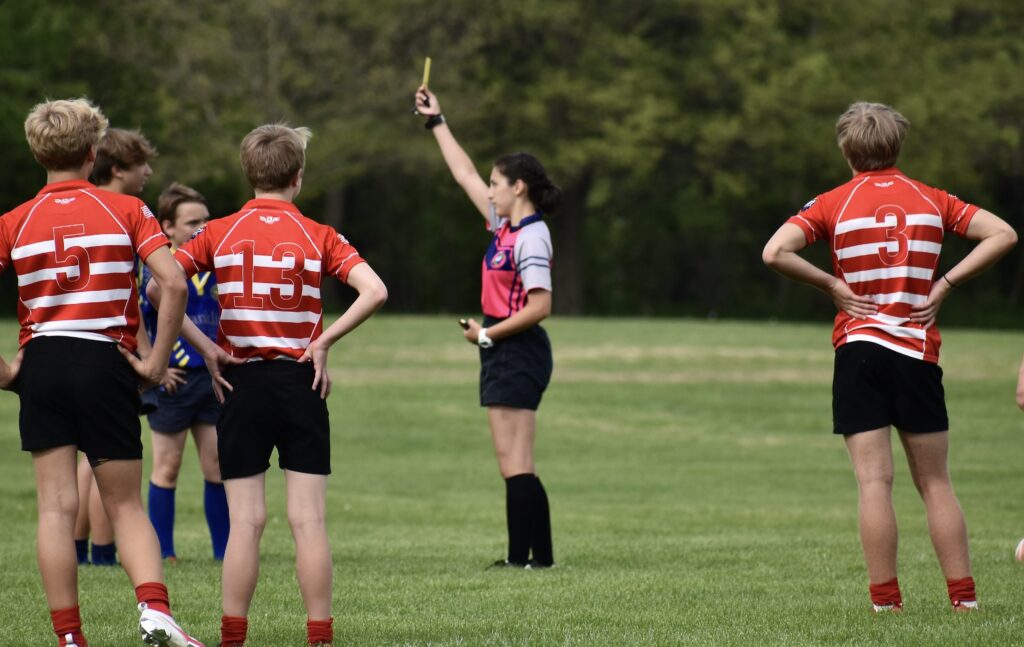
Nate doesn’t like to card, per se, so like all good refs, she attempts to identify and manage trouble areas before they culminate into sin bins. One of her favorite memories as a referee employed such a tactic, and occurred at the end of last spring, her first full season refereeing the 7th and 8th grade boys. She recognized a player earlier in the year, a boy who had played dangerously throughout a match. In that first encounter, Nate was still uncertain in her authority to issue cards and relied on penalties to punish his behavior. But she was a different person in the reunion.
“Knowing that he would continue to play dangerously if I didn’t say anything, I decided to call him out before the match,” Nate recounted the pre-game chat. “I told him that I recognized him from before and remembered he played dangerously by charging with his elbow and not wrapping on some of his tackles. I then warned him that I would be paying careful attention to him and that I expect him to clean up his plays.”
The tactic worked and said player played a clean game. Rugby Indiana Executive Director Wayne Eells, whom Nate lauds for his day-one support and advocacy, was her mentor for that game.
“He told me that when he saw my interaction with the player, he knew I had complete control over the match, and that he didn’t have to worry about anything,” Nate recalled. “I was extremely happy to hear this, as it showed how much I had improved over the course of the spring season.
“He always looks out for me and provides me with countless opportunities to learn, improve, and display my skills,” Nate circled back to Eells. “Most importantly, he makes me feel appreciated and proud of myself. Whenever he’s present when I referee a match, he highlights something I did well or improved on. It makes me feel motivated to continue learning and improving.”
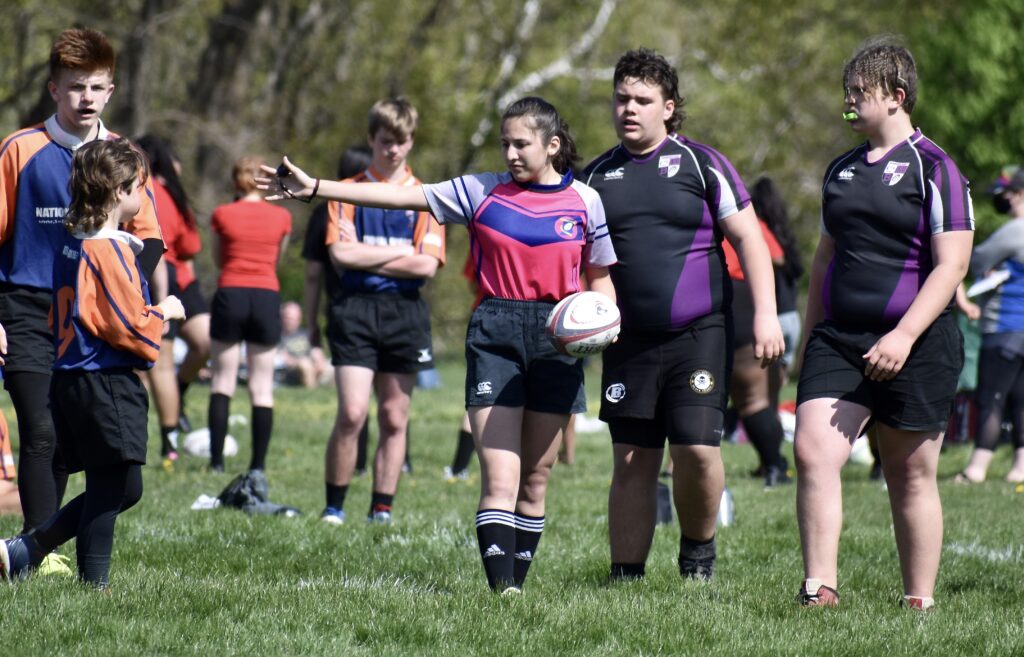
Nate is eager to break into the high school boys’ competition, as the pace of those matches as well as the kicking game would be a new experience. Long term, Nate wants to referee a professional international match one day.
But what about Nate’s original motivation to start refereeing – to become a better player? Unsurprisingly, the North Central scrumhalf has advanced her game with equal fervor. She’s played with Indy Speed during the summer, attended her first EIRA camp, and has added the translatable discipline of wrestling to her pursuits. She attacks weaknesses in her game – like when she didn’t have the leg strength to kick sideline conversions, she biked 30-50 miles every day until she could nail in-game dropkicks five meters from the touchline.
“Coco is a positive light on the team,” North Central HS head coach Jazmyne Spear-Assaf praised the scrumhalf. “She is always willing to help her coaches and teammates. She always gives 110% and provides feedback and/or resources so others can give the same effort. She is tough and loves a challenge so that she can prove that there is no obstacle she cannot overcome.”
Nate is equally enamored with coach Spear-Assaf, another role model.
“Her dedication to the team is very clear in how she comes to practice directly after work and puts in great effort to help us learn and improve despite it being the end of the day,” Nate explained. “She not only coaches but also plays rugby, so she is able to introduce many updated skills to the team and understands the difficulties players encounter. Coaches that truly understand their players are rare, so I am very grateful to have her. Additionally, she is very supportive of me refereeing and pushes me to apply my knowledge to help my team. For example, last spring season, she had me demonstrate some referee primary and secondary signals to the team. It makes me very excited and motivated to learn more when I know that I am benefitting the team.”
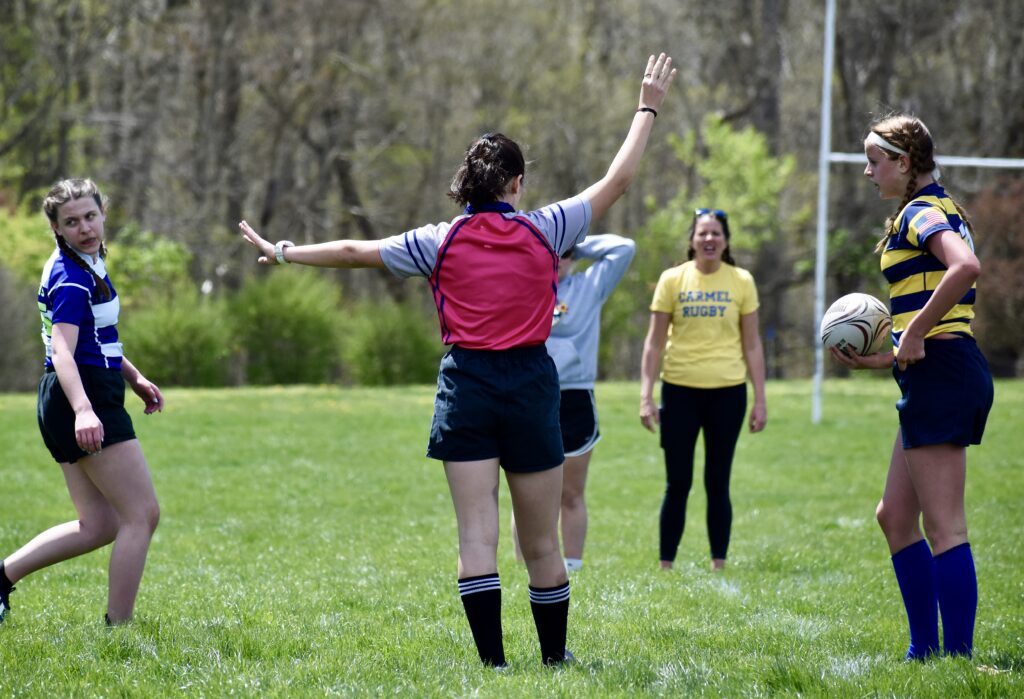
And of course, Nate’s supposition that knowledge of the laws would build a smarter player was proven true, but she gained more nuanced advantages as well.
“Officiating has also allowed me to understand that each referee has their own style and has helped me recognize each style,” Nate explained. “Although there are laws for every aspect of the game, referees have varying definitions of the ball not being thrown or rolled straight, when the ball is considered ‘out’ from the scrum or ruck, and exactly how far up the scrum a losing scrumhalf can go before it’s considered offsides. By understanding what the referees’ definitions of these are, I can use them to my advantage. It’s especially helpful in a scrum or ruck to know what the particular referee’s definition of the ball being “out” is so that I can intercept the ball or tackle the scrumhalf before she can pass the ball out, especially if the opposing scrumhalf does not understand the referee’s style.”
As for playing rugby, Nate’s goals center on enjoyment. She wants to win the Indiana state 15s championship this spring and play as far and as high as she can. And she just accepted an invitation to play with Atlantis at the Tropical 7s this April. Beyond high school, she intends to pursue aeronautical engineering and astrophysics or chemical engineering in college, and if that institution has a rugby program, then she’ll play. But she knows she’ll referee past high school and hopefully for a long time to come.
“Firstly, even if you aren’t confident in yourself, fake it,” Nate addressed youth referees of the future. “If you act confident, you’ll become confident.
“Secondly, know that your age has nothing to do with your qualifications or abilities; it’s your effort and dedication that do,” she continued. “If anyone questions your decisions or your authority because you’re young, stand your ground. You’re the one with the whistle, not the coaches, players, or parents.
“Lastly, remember you will always have support,” Nate closed. “Being a referee can be very tough at times, and your rugby association understands that. You’ll most likely be provided with mentors who will help you improve your skills or learn how to defuse a difficult situation. If you aren’t, reach out to local, higher-level, referees. Someone will always be willing to help you.”

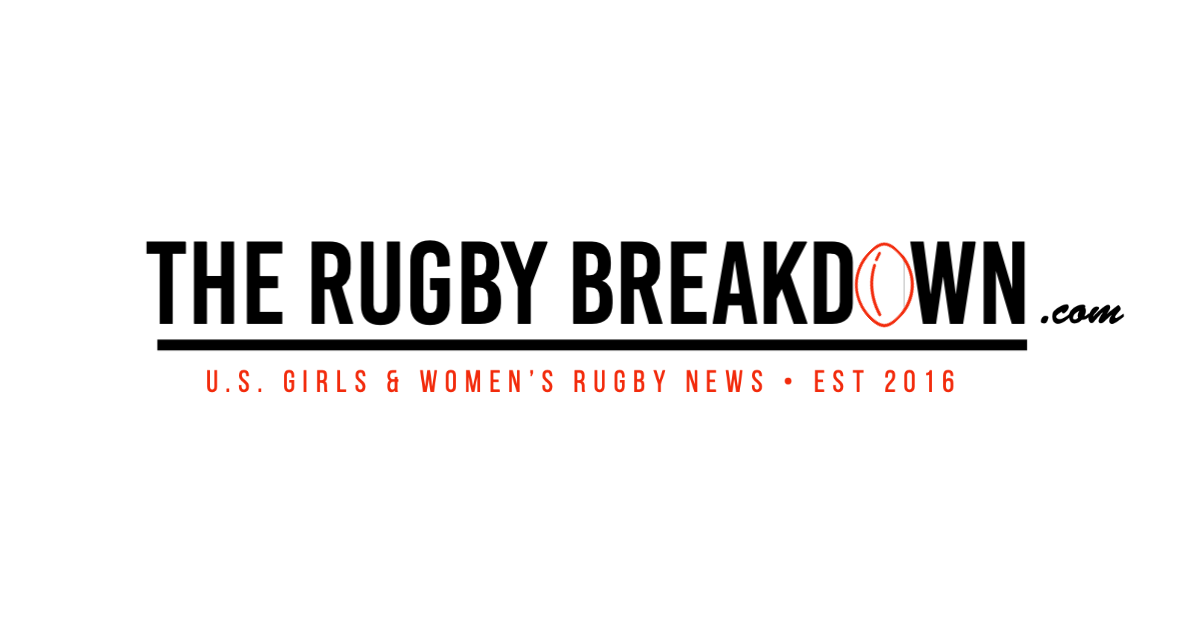
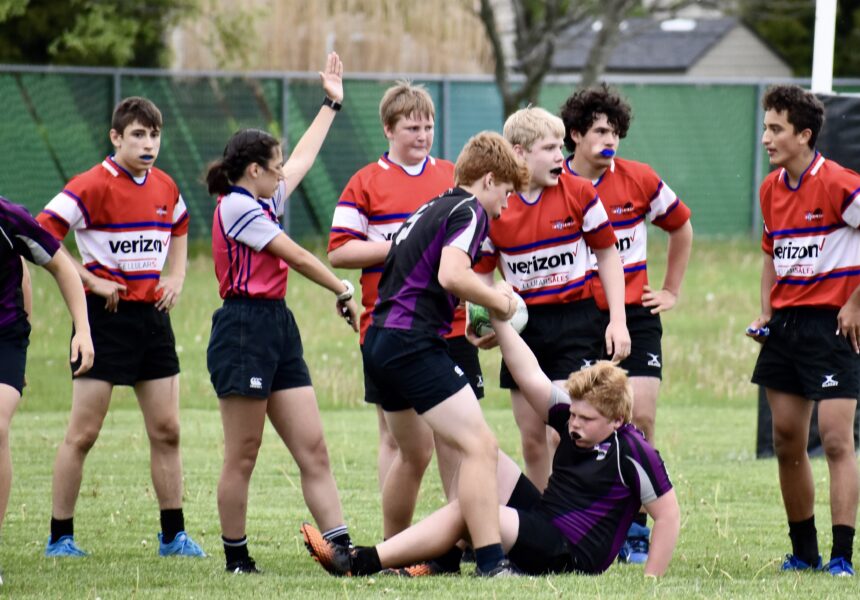
All Comments
Excellent article and very inspiring. I have seen her play rugby. I believe she is definitely Olympic champion quality. And to be so science motivated makes me more interested in her sports and academic career. Have Fun!